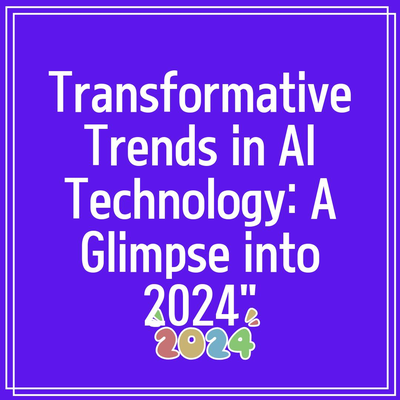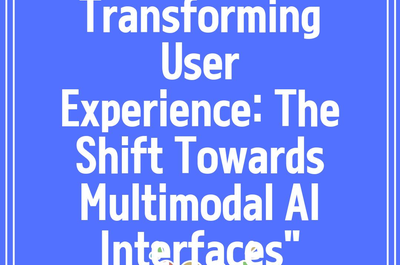
Advancements in AI Technology: What to Expect in 2024
The year 2024 is poised to witness remarkable transformations in the field of
The Rise of Generative AI
One of the most striking trends in AI is the rise of
2024, Generative AI refers to algorithms capable of creating content — be it images, text, or even music — based on the input they receive. Major tech companies are investing heavily in this technology, leading to enhanced models that can understand complex prompts and deliver high-quality creative outputs.
This evolution is not just about generating random content. It represents a shift towards making AI a collaborative partner in creative processes. For example, content creators can use generative AI to brainstorm ideas, draft outlines, or even create sophisticated graphics. As these tools improve, they are expected to become staples in creative industries, enabling teams to produce higher quality work more efficiently.
AI in Healthcare: Revolutionizing Patient Care
In 2024, AI is anticipated to play an even more significant role in
Moreover, AI-powered applications are being developed to assist in drug discovery, potentially speeding up the process of bringing new medications to market. Techniques like natural language processing (NLP) are also being used to streamline administrative tasks in healthcare settings, allowing medical professionals to focus more on patient care rather than paperwork.
The Ethical Implications of AI Development
As AI technology advances, there are rising concerns regarding its ethical implications. Issues surrounding data privacy, algorithmic bias, and job displacement are likely to take center stage in discussions throughout
2024, As organizations implement AI systems, it will be crucial to address these challenges proactively.
In response, some companies are beginning to adopt ethical AI frameworks, ensuring that their AI systems are designed with fairness and accountability in mind. Regulators might also step up their efforts to formulate guidelines that govern the responsible use of AI, balancing innovation with societal safety.
AI Integration in Business Operations
Businesses in various sectors are increasingly realizing the potential of AI to enhance operational efficiency. In 2024, companies will likely accelerate the integration of AI into their
Moreover, the implementation of AI tools can lead to cost savings and better decision-making. Companies that adopt AI technologies are likely to be more agile, allowing them to respond swiftly to market changes and customer needs. As a result, AI proficiency is becoming an essential skill set for the modern workforce, necessitating upskilling and reskilling initiatives.
The Role of AI in Cybersecurity
With the increasing digitization of information, cybersecurity remains a critical concern. AI is set to play a pivotal role in enhancing
2024, Organizations are leveraging AI technologies to detect and respond to threats in real-time. By analyzing patterns of network traffic and identifying anomalies, AI systems can significantly reduce the time it takes to thwart cyber attacks.
Moreover, the adaptability of AI allows it to learn from previous breaches, continually improving its defensive capabilities. As cyber threats become more sophisticated, the demand for AI-driven cybersecurity solutions is expected to grow, making it an essential aspect of modern security strategies.
Conclusion: Embracing the Future of AI
As we look forward to 2024, the advancements in AI hold immense potential to transform various aspects of our lives. From enhancing creative capabilities to revolutionizing healthcare and business operations, the impact of AI is far-reaching. However, with great power comes great responsibility; it is imperative that stakeholders prioritize ethical considerations, ensuring that AI advancements serve the interests of society as a whole.
In this rapidly changing landscape, staying informed and prepared for the evolving role of AI is crucial. Embracing these changes may not only foster innovation and growth but also enable us to navigate the complexities of an increasingly AI-driven world.


